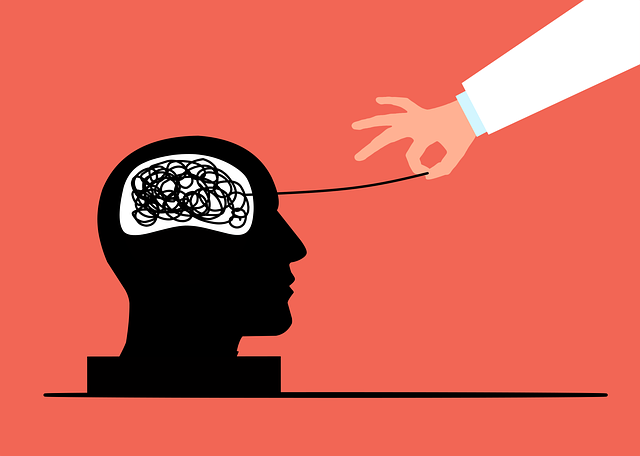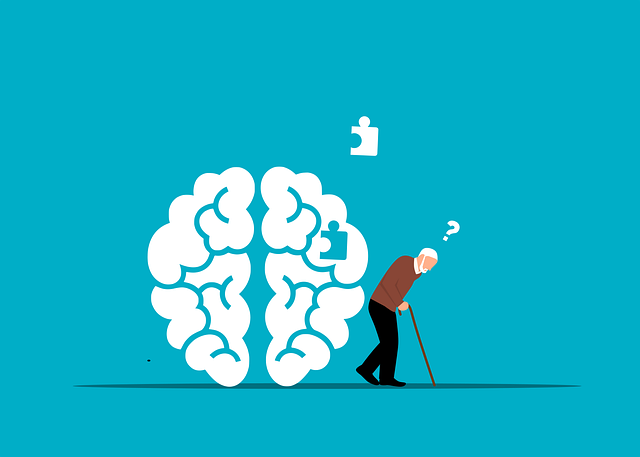Online therapy emerges as a revolutionary force in elder care, providing accessible and innovative solutions for well-being in the digital age. By integrating technology, elders gain personalized conflict resolution skills, self-care routines, and enhanced resilience to stress and trauma. This approach addresses unique challenges in mental health access, promotes stigma reduction, and offers discrete resources. Through online sessions, seniors build emotional agility, adapt to change, and combat loneliness, improving quality of life. Specialized platforms cater to remote or mobility-challenged elders, offering tailored services like emotional regulation and stress management workshops, utilizing secure video conferencing for trauma support from home. As technology advances, online therapy is pivotal for enhancing the well-being of the elderly community.
“In today’s digital age, understanding and developing coping skills are more vital than ever for elders’ overall well-being. This article explores effective strategies to enhance mental resilience in older adults. We delve into the benefits of online therapy as a game-changer in elderly care, addressing challenges like loneliness and isolation.
From building resilience to accessing quality mental health support, these strategies empower elders to navigate life’s hurdles. Discover how online resources provide a convenient and accessible avenue for care, revolutionizing elder mental health assistance.”
- Understanding Coping Skills: A Vital Tool for Elders' Well-being
- The Benefits of Online Therapy for Elderly Individuals
- Building Resilience: Effective Strategies for Coping with Life's Challenges
- Overcoming Loneliness and Isolation Through Digital Connections
- Accessing Quality Care: Online Resources for Elderly Mental Health Support
Understanding Coping Skills: A Vital Tool for Elders' Well-being

Understanding coping skills is a vital tool for elders’ well-being in today’s digital era. Online therapy has revolutionized access to support services, enabling elderly individuals to navigate through life’s challenges with enhanced resilience. By incorporating effective conflict resolution techniques and fostering self-care routine development for better mental health, elders can transform their coping strategies into powerful resources. This approach not only helps them manage stress and trauma but also promotes a sense of control and independence.
The integration of digital platforms in therapy has opened doors to accessible resources, including online counseling sessions and trauma support services. These innovations cater to the unique needs of elders, ensuring they receive the necessary tools to cope with daily stressors. By embracing technology, elders can actively engage in self-care practices that contribute to their overall well-being, making them more equipped to handle life’s ups and downs with grace and perseverance.
The Benefits of Online Therapy for Elderly Individuals

The integration of online therapy platforms has revolutionized mental health support, especially for elderly individuals who may face unique challenges in accessing traditional in-person services. This innovative approach offers a range of benefits tailored to the needs and circumstances of older adults. One of the key advantages is increased accessibility; geographical barriers are no longer an issue as elders can connect with therapists from the comfort of their homes. This is particularly valuable for those with limited mobility or living in remote areas, ensuring they receive the care they need without the hassle of travel.
Additionally, online therapy provides a sense of convenience and privacy that can foster higher levels of engagement and participation. Many elderly individuals may feel more at ease discussing sensitive topics in a virtual setting, leading to improved disclosure and, consequently, better treatment outcomes. This mode of therapy also encourages resilience building by offering regular check-ins and consistent support, which is crucial for managing mental health effectively. Moreover, as public awareness campaigns development and mental illness stigma reduction efforts gain momentum, online therapy can play a significant role in promoting mental wellness among the elderly by providing discrete and accessible resources.
Building Resilience: Effective Strategies for Coping with Life's Challenges

Building resilience is a vital skill to navigate life’s challenges and promote overall well-being, especially as we age. Online therapy platforms offer a convenient and accessible way for seniors to enhance their coping mechanisms. Through guided sessions, individuals can learn effective strategies such as conflict resolution techniques and cognitive reframing to manage stress and adversity. By fostering resilience, elders can improve their ability to adapt to change and bounce back from setbacks, ensuring a higher quality of life.
Incorporating online therapy into one’s routine allows for personalized support tailored to individual needs. Therapists provide tools for depression prevention and burnout prevention strategies specifically designed for healthcare providers, who often face high-stress situations. These sessions promote self-care practices and emotional agility, enabling seniors to face challenges head-on with renewed energy and perspective.
Overcoming Loneliness and Isolation Through Digital Connections

In today’s digital era, technology offers a lifeline for elders feeling lonely or isolated. Online therapy platforms provide a convenient and accessible means to connect with mental health professionals, fostering a sense of community and belonging. Through video calls, chat forums, and interactive tools, seniors can engage in therapeutic practices that promote emotional well-being promotion techniques. These digital connections not only combat feelings of loneliness but also encourage the development of resilience and social skills, essential elements of coping skillsets.
Mind over matter principles and compassion cultivation practices are increasingly integrated into online therapy for elders. Therapeutic interventions focus on helping individuals reframe negative thoughts, cultivate empathy, and nurture positive relationships, all while addressing the unique challenges of aging. By leveraging digital tools, these innovative approaches ensure that elders have access to support systems and resources needed to thrive, even in the face of physical isolation.
Accessing Quality Care: Online Resources for Elderly Mental Health Support

Accessing quality mental health care can be a challenge for many elderly individuals, but the rise of online therapy has made support more accessible than ever before. This is especially beneficial for those living in remote areas or facing mobility issues that might hinder their ability to attend traditional face-to-face sessions. Online therapy platforms offer a range of services tailored specifically for seniors, including emotional regulation techniques and stress management workshops. These digital resources provide an additional layer of support, ensuring the elderly population has access to professional guidance when they need it most.
Many reputable organizations now provide trauma support services via secure video conferencing tools, allowing individuals to receive therapy from the comfort of their homes. This shift towards online care not only promotes convenience but also encourages a sense of control and autonomy for seniors, fostering an environment where they can openly discuss their mental health concerns without traditional barriers. As the digital world continues to evolve, these online therapy services will undoubtedly play a pivotal role in improving the overall well-being of the elderly community.
Coping skills development is a powerful tool to enhance the well-being of elderly individuals. As our society becomes increasingly digital, online therapy and innovative strategies play a vital role in supporting elders’ mental health. By leveraging online resources, connecting through technology, and building resilience, we can help them navigate life’s challenges and overcome feelings of loneliness and isolation. The benefits of these approaches are clear: improved access to care, increased social connections, and enhanced overall well-being for our aging population. Therefore, promoting coping skills development among elders should be a priority, leveraging the advantages of online therapy as a game-changer in eldercare.








